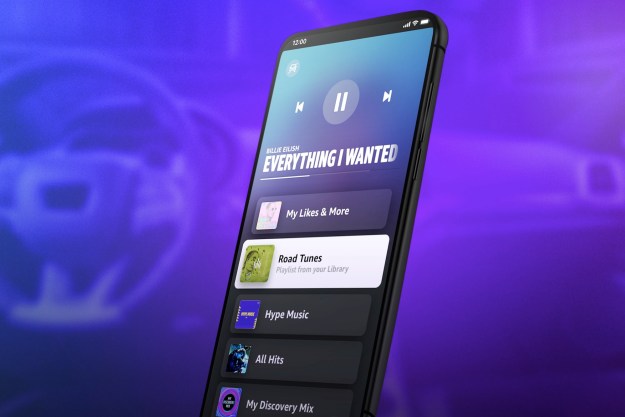If self-driving cars ever become mainstream, their passengers will have lots of free time on their hands. Volvo and Ericsson believe they’ll enjoy using it to watch television shows and other content while their robotic cars whisk them to their destinations. That’s a pretty good bet, actually.
At the 2016 Consumer Electronics Show (CES), the two companies announced plans to develop “intelligent,” high-bandwidth media streaming capabilities for use in future autonomous vehicles. Because it would be a shame if the only thing stopping you from watching Netflix on your morning commute was low bandwidth.
Volvo and Ericsson both expect a major uptick in mobile-device usage if self-driving cars hit the road in large numbers, particularly in rural areas. The two companies want to create a system that will analyze network conditions along a car’s route, allowing content “to be tailored to the duration of each trip” and “intelligently buffered” to ensure there are no interruptions.
So Volvo’s concept will go beyond the onboard Wi-Fi systems already available in some production cars, which simply enable the streaming of video content. Volvo wants to actually pair content with a given trip, equipping future cars with a one-click navigation feature that automatically brings up a customized list of media when a destination is selected. That list would be created based on local network conditions and the expected amount of autonomous-driving time.
While several carmakers plan to put self-driving cars on sale in the near future, Volvo has spent more time than most considering how automation will affect different aspects of vehicle ownership. At the 2015 Los Angeles Auto Show, it unveiled Concept 26, a preview of what a future autonomous-car interior could look like. The disembodied vehicle cabin could morph into different configurations, depending on whether a person or a machine is driving.
Volvo also claims to have developed a production-ready autonomous drive system. Called “Intellisafe Auto Pilot,” it allows for autonomous driving under certain conditions at the press of a button. The system will be tested by Volvo customers on public roads in Gothenburg, Sweden, as part of the company’s “Drive Me” project.
Editors' Recommendations
- Don’t let the gimmicks fool you. The Ioniq 5 N is a serious track car
- An autonomous car in San Francisco got stuck in wet concrete
- Ford and VW close down Argo AI autonomous car unit
- I don’t care if the Asus ROG Flow Z13 is a laptop or a tablet — I just want one
- Aptiv’s machine learning-powered radar sees even what you don’t


